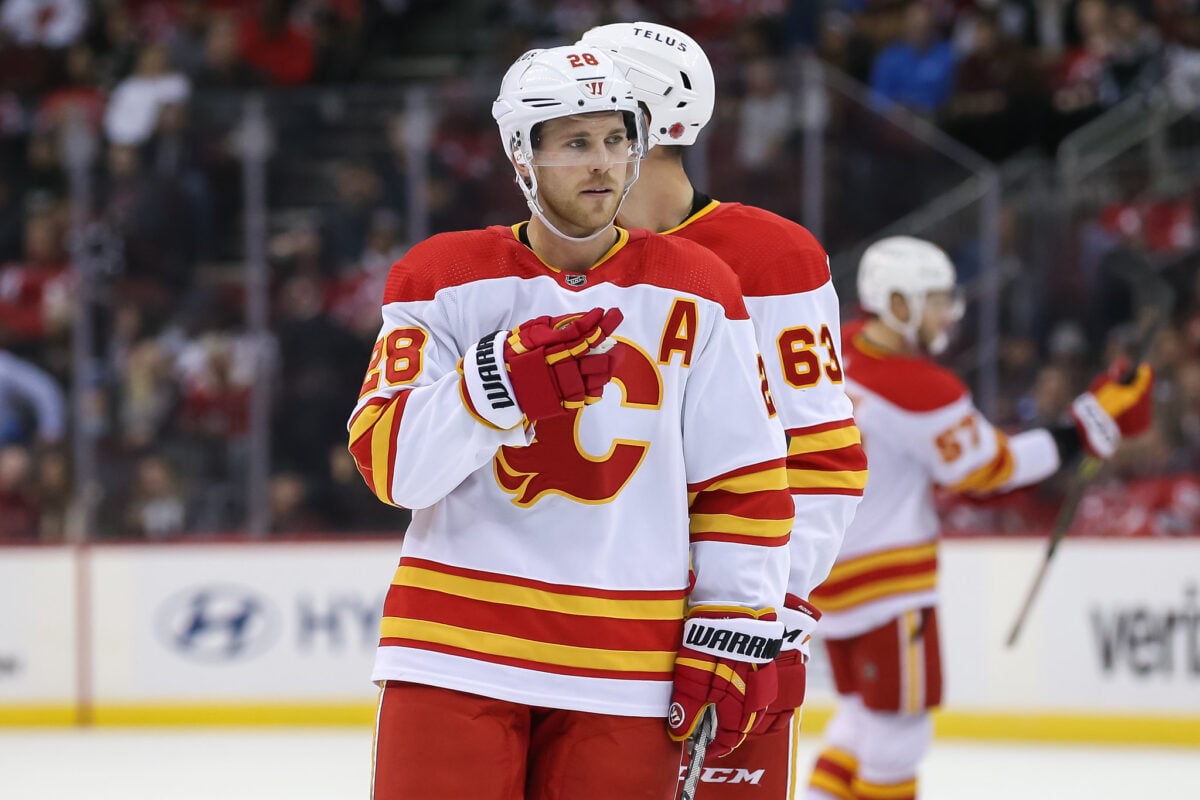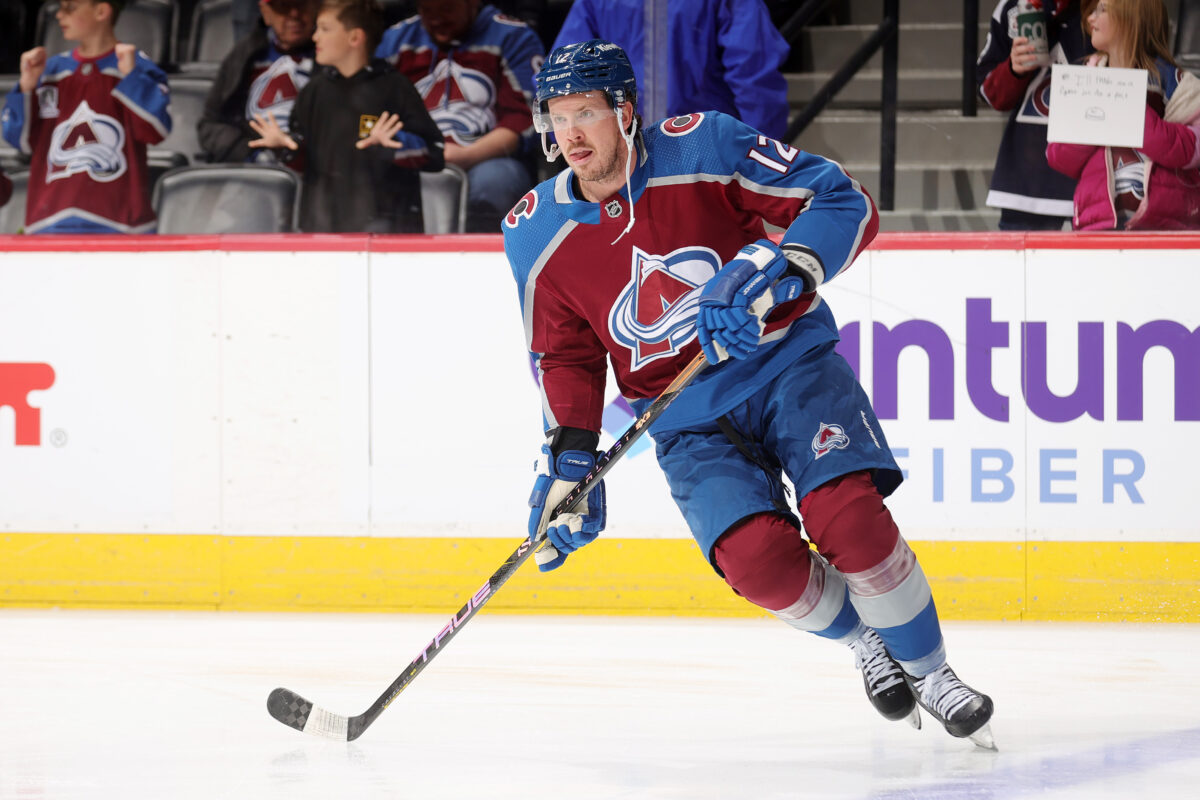Though the Colorado Avalanche have gotten off to a fairly strong start to the 2023-24 season as they sit in a tie with the Dallas Stars for the Central Division lead by points, there remains significant room for improvement.
In particular, the second-line center spot continues to be a thorn in the side of the Avalanche front office, two years after Nazem Kadri’s departure as a free agent following the team’s 2022 Stanley Cup win. The hole was thought to have been addressed with the acquisition of veteran center Ryan Johansen this past summer, but the 31-year-old has gone cold after a decent start to his Avalanche tenure.
Given that more than half of the season has yet to be played, the trade market is far from settled. Teams will move in and out of playoff contention multiple times between now and the March 8 deadline, so getting hyper-fixated on one target isn’t wise in a fluctuating environment. Still, some names have begun to crop up more than others, and could be a good fit within the Avalanche lineup.
Flames’ Lindholm Finding Himself in Trade Rumors
NHL insider Elliotte Friedman recently reported that the Avalanche could look to make a move after trading winger Tomas Tatar and his $1.5 million cap hit to the Seattle Kraken. He has also highlighted center Elias Lindholm of the Calgary Flames as a potential trade target on a different occasion. Lindholm has posted seven goals and 20 points in 32 games this season, but is only two years removed from tallying 42 goals during the 2021-22 campaign and could provide the scoring punch the Avalanche so badly desire behind Nathan MacKinnon.
The pending unrestricted free agent (UFA) carries a cap hit of $4.85 million, almost the exact amount the Avalanche currently have available after dipping into their long-term injured reserve (LTIR) designation.

Gabriel Landeskog ($7 million) and Pavel Francouz ($2 million) have both been ruled out for the entire regular season, but Artturi Lehkonen ($4.5 million) is projected to return before the playoffs so his cap hit must be accounted for in any trade discussions. Whether it’s through salary retention or including a player with a significant cap commitment, the Avalanche will have to do some financial maneuvering to fit Lindholm in a (relatively) healthy lineup.
On a team level, there is little reason for the Flames to keep hold of their pending UFA. They currently sit outside of the Western Conference playoff race with 31 points in 32 games, sitting three points behind the Arizona Coyotes for the second wild card spot, though the Coyotes have a game in hand. Further, the St. Louis Blues (31 points in 31 games), Minnesota Wild (30 in 30), and Edmonton Oilers (27 in 29) are all either ahead of the Flames in points, or possess multiple games in hand.
You may also like:
- 3 Takeaways from the Avalanche’s 4-2 Win Over the Sharks
- NHL Morning Recap – February 5, 2026
- 3 Takeaways From the Avalanche’s 2-0 Loss to the Red Wings
- NHL Morning Recap – February 3, 2026
- Avalanche Week Ahead: Schedule & Storylines – MVP Chase, Nelson’s Hot Streak, Injuries and More
Ever since the Flames completed the Jonathan Huberdeau for Matthew Tkachuk trade, the franchise has been in flux. That deal coupled with Johnny Gaudreau’s departure and head coach Darryl Sutter’s failed return stint with the club has cast a ton of uncertainty on where the organization is headed. The team already sold off defenseman Nikita Zadorov earlier this season, so doing the same with the likes of Lindholm, Noah Hanifin, and Chris Tanev (all pending UFAs) could expedite a well-overdue rebuilding process.
Whether the Avalanche could assemble the most enticing trade package is another discussion. They hold their own first-round picks for the foreseeable future, but don’t have a second-round pick until 2026 and have an average prospect pool. The fit is there, but there’s more to any potential deal than just how well a player will integrate themselves into the team.
Johansen Trade Not Working Out as Expected
As I alluded to earlier, the Avalanche browsing the trade market is due to the underwhelming play of one of their biggest offseason acquisitions in Johansen. While he was coming off an injury-riddled season in which he posted 28 points in 55 games, there was belief he could reinvent himself in Colorado.
Johansen delivered in October, scoring four goals and five points in eight games while averaging 16:39 per game in all situations, fifth among all Avalanche forwards. Since then, Johansen has seen both his production and usage drop in tandem.

In 24 games since the start of November, Johansen has only scored six goals and seven points, with his 13:35 per game over that span ranking seventh among all Avalanche forwards. He’s struggled to keep pace in an up-tempo attacking system, and has been overtaken at five-on-five by Ross Colton, one of Colorado’s other offseason acquisitions.
At a $4 million cap hit through the end of next season, the Avalanche were hoping for more than what he’s provided thus far. He’s got his utility on the power play and remains an ace in the face-off dot, but more even-strength production and play-driving are needed in the top six.
Avalanche Must Practice Patience In Trade Talks For Now
The NHL’s holiday roster freeze is in place until Dec. 28, so any potential trade discussions would have to wait until at least after that time. The Avalanche’s strong start has given them room to breathe, and the experienced group will understand that it’s better to peak in the spring. The Avalanche’s management group has earned the trust of the fanbase and will wait for the right opportunity to strike, so there’s little doubt they will do so in time.
Data courtesy of the NHL.
